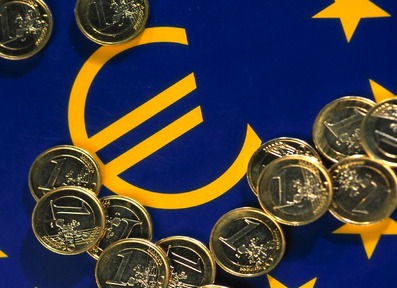The EU’s proposed transaction tax has once again reared its ugly head as Michel Sapin, the French finance minister, urged colleagues to strike a deal.
Discussions at the European Finance Ministers’ meeting in Brussels resulted in Mr Sapin urging others to “advance, even if by only a step”, adding that the “worst danger would be failure” to implement a tax on financial transactions.
The idea was posed in 2011 in the wake of public anger over the Eurozone crisis as a way to channel the anger at bankers and traders into providing revenue for the EU. It was proposed by France and Germany as well as the European Commission, who are the body which proposes legislation in the political bloc.
The eurozone was very badly hit by the recession because countries tied up in the single currency were unable to use monetary policy to help their economies out of a crisis, and instead had to rely on domination from the ECB and Germany. At the same time, tax payers in the rest of the bloc had to watch their money used to bail out the fatally flawed single currency which caused mass unemployment and rioting in capital cities in the South of the continent.
The Tobin tax, so called after its proposer James Tobin, was originally designed to distribute money from financial hubs like Wall Street at the City and help development in poor countries. It aimed to reduce speculation and fluctuation in global markets but limiting the number of deals and trades which occurred by levying a charge on each one.
The European version, however, is not so considerate of the developing world that the left in particular say they want to help. Any money raised by an EU Financial Transaction Tax would go towards financing future bail outs – sold as ‘sparing the taxpayer’ but in reality sparing politicians from public animosity.
The idea is not popular in many EU countries including in Britain which depends on the wealth and jobs created by the City of London. The opposition of countries leaves 11, including France and Germany, to go it alone.
Sapin said France was committed to the deadline to finalise a deal “by the end of the year” so that the tax could be up and running by January 2016.
This could include a “watered down” proposal which would include only the most “toxic” derivatives, says Sapin. However such a proposal was met with criticism.
M Sapin must balance his government’s support for the tax with the revenue created by the French derivatives trading sector particularly as their economy is at a stand still and French President François Hollande may even be deseleted as his party’s candidate for the next Presidential elections.
Italian Finance Minister Pier Carlo Padoan, who presided over the meeting of EU ministers, said “good progress” had been made on reaching a political deal, according to The Local.
Charities were less impressed with news from the meeting, reminding ministers that Tobin proposed the tax to help the poor and needy rather than central banks of supranational organisations.

COMMENTS
Please let us know if you're having issues with commenting.